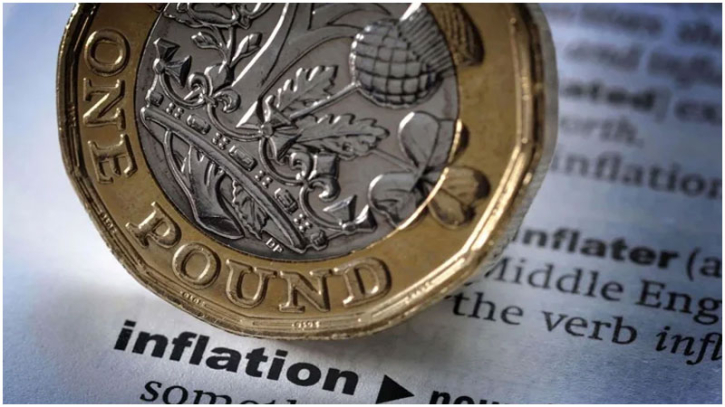UK annual inflation jumps to 3% last month

UK inflation jumps to 3%
UK inflation rose more than anticipated to 3 per cent in the year to January, the highest level in 10 months, in a fresh setback for consumers and the chancellor.
The annual rate of price growth was above the 2.5 per cent recorded in December and the 2.8 per cent forecast by economists polled by Reuters, the Office for National Statistics (ONS) said. It is the steepest rate since March, 2024.
The increase was driven by higher costs for private schools after the government imposed VAT on fees, higher costs for food and non-alcoholic drinks and air fares dropping less than they usually do in January.
The chief economist of the ONS, Grant Fitzner, said: "The rise was driven by air fares not falling as much as we usually see at this time of year, partly impacted by the timing of flights over Christmas and New Year.
"This was the weakest January dip since 2020. After falling this time last year, the cost of food and non-alcoholic drinks increased, particularly meat, bread and cereals.
"Private school fees were another factor, as new VAT rules meant prices rose nearly 13% this month."
From the start of this year, many schools passed price increases on to parents after the standard rate of 20% was applied to private school education and boarding fees.
On a monthly basis, CPI fell by 0.1% in January, compared with a 0.6% fall in January 2024.
Transport costs rose at the fastest annual rate since February 2023 because of air fares and fuel prices, which both fell by less than they did last year, though this was partially offset by a downward effect from secondhand cars.
Air fares tend to rise at the start of December and fall as January arrives. However, this time the pattern was less pronounced than in previous years, the ONS said.
Food prices rose by 3.3% in January, up from 2% in December. Meat, bread and cereals, fish, milk, cheese and eggs, jam, coffee and tea, and juice all became dearer.
The core rate of inflation, which strips out volatile food and energy costs, climbed to 3.7% from 3.2%.
Inflation is the increase in the price of something over time. If a bottle of milk costs £1 but is £1.05 a year later, then annual milk inflation is 5%.
Inflation has fallen significantly since hitting 11.1% in October 2022, which was the highest rate for 40 years. However, that doesn't mean prices are falling – just that they are rising at a slower pace.
Chancellor Rachel Reeves said: “Getting more money in people’s pockets is my number one mission. Since the election we’ve seen year on year wages after inflation growing at their fastest rate – worth an extra £1,000 a year on average – but I know that millions of families are still struggling to make ends meet.
"That’s why we’re going further and faster to deliver economic growth. By taking on the blockers to get Britain building again, investing to rebuild our roads, rail and energy infrastructure and ripping up unnecessary regulation, we will kickstart growth, secure well paid jobs and get more pounds in pockets.”
The Bank of England said this month that price pressures were on “a bumpy path” as it forecast that inflation would rise to 3.7% in the middle of the year.
BoE governor Andrew Bailey said on Tuesday that the central bank had been able to cut interest rates three times since last summer due to falling inflation and because “we are facing a weak growth environment in the UK”.
Inflation will probably rise further to around 3.5% in the second half of this year, said Ruth Gregory, deputy chief UK economist at the consultancy Capital Economics.
She said: "We doubt this will prevent the Bank of England from cutting interest rates further. But it will mean it continues to cut rates only slowly."
Alice Haine, personal finance analyst at Bestinvest, said: “An uptick in the headline inflation figure will certainly be worrying for households who may be fearing a return to the dark days of rapid price rises that devastated household budgets during the cost-of-living crisis.
"Higher inflation diminishes spending power and erodes savings, making it harder for people to maintain the living standards they desire.
“While inflation at 3% is still a vast improvement on the peak of 11.1% at the height of the great financial squeeze in October 2022, the BoE expects higher energy prices to lift inflation to a peak of 3.7% later this year.
"Whether this slows the pace of rate cuts remains to be seen. The BoE made its third quarter-point rate reduction since August earlier this month and many households, particularly those grappling with oversized mortgages or heavy debts, are likely to be hoping for a fourth reduction next month.
“Household budgets are already set for a heavy hit in April when household bills such as energy, water and council tax jump up again.
"For retirees on fixed incomes, who have also been hit by the government’s decision to scrap winter fuel payments for all but the poorest pensioners, times may feel very tough."
.png)




